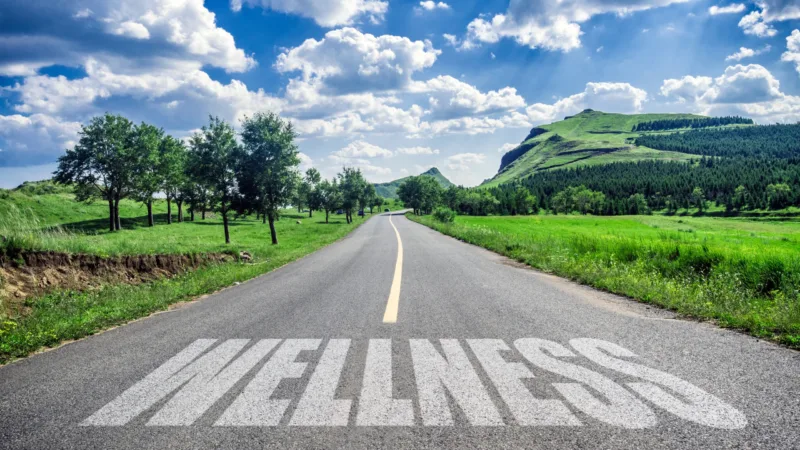Let’s face it: lawyers don’t have a reputation for taking it easy. Few professions are more associated in the public mind with long hours and exhausting workloads.
There’s a lot of truth in that perception. On an average workday, lawyers contend with a host of stressful factors. They may need to do comprehensive research on a tight deadline, while also mastering the complexities of the court system, while also managing client expectations.
It’s a recipe for burnout. Many law firms have seen some of their most promising junior lawyers hit a breaking point and leave their jobs for something with a better work-life balance. This is why lawyer wellness is a substantial issue for law firms—one that needs to be taken seriously.
What does wellness mean?
As per the Global Wellness Institute, wellness is defined as “an active process of being aware and making choices that lead toward an outcome of optimal holistic health and wellbeing.”
The concept of wellness has some cornerstone beliefs:
- Wellness is a self-directed action—it’s a conscious and evolving process that’s driven by the individual.
- Wellness encompasses a wide range of factors. These include a person’s physical and mental health, including one’s emotional responses to events. But it also brings in environmental and social influences as well.
How is wellness different from health?
While you may see “health” and “wellness” being used interchangeably in advertisements or corporate literature, they remain substantially different concepts.
Essentially, “health” is someone’s current state of being—their mental and physical fitness. Not only the absence or presence of disease or other debilitating issues but longer-term improvements or declines in mental and physical well-being. Wellness, in turn, is a process done to enhance a state of well-being.
So, a person’s positive health may be dependent upon the person achieving and continually improving wellness. At its best, this creates a positive cycle.
A focus on occupational wellness
Occupational wellness is a subset of wellness. It refers to the practice of improving one’s well-being in the workplace.
Some critical aspects of one’s health, of course, aren’t determined by environmental factors—for example, genetic dispositions towards various diseases. Occupational wellness, however, is focused on how to improve the social and environmental conditions negatively affecting a worker’s health (and productivity).
For companies, occupational wellness strategies may include:
- Helping workers to achieve a better work-life balance
- Giving employees more flexibility in terms of hours or schedules
- Encouraging physical fitness by offering an on-site workout facility
- Making sure that supervisors distribute workloads equitably so that no particular employee is carrying a heavier load than another.
- Financial wellness programs, such as helping them reduce debt and better manage their expenses.
Why is overall wellness important for lawyers?
A working lawyer is under multiple pressures, any of which may seem overwhelming. Achieving occupational wellness in the legal industry means that you’re battling on a number of fronts, each with its own challenges.
Stress management
A common situation for lawyers: after a long day at work, you try to get some sleep, only to stay awake worrying about the day ahead. You spend your “free time” trying to catch up on emails. You never feel as if you’re not on call. This sets the stage for a situation where, at worst, a lawyer gets incapacitated by depression or exhaustion.
Among some wellness strategies, start with making incremental improvements in reducing stress loads. Take advantage of your company’s wellness programs. Use innovations in legal technology to reduce time-consuming but unrewarding work, such as billing or preliminary research.
Time management
Lawyers rarely work a standard nine-to-five, with many putting in closer to an 80-hour week.
Better time management is fundamental to improving a lawyer’s wellness. Anything that takes up time—whether it’s having to fly to visit a client or getting stuck in a long, poorly-organized meeting—adds more hours to an already-packed schedule. Aim to do more in less time, with technology as a key tool.
Trauma management
Criminal lawyers may absorb details of shocking crimes and antisocial behavior. Even lawyers who don’t work on criminal cases have clients enduring stressful life events: divorces, bankruptcies, frauds.
A lawyer needs to process this information. This emotional turmoil isn’t always something that you can easily turn off once you leave the office, particularly when you’re deep into a case. The more unpleasant and harrowing the details of a case, the more emotional labor the lawyer has to do just to keep a level head.
Law firms should help their attorneys process any traumatic exposure. Superiors need to be aware of what their lawyers are dealing with, in terms of case materials. Firms could ensure that after a difficult case is over, the lawyers involved get time to process and reflect.
Here’s a question to ask yourself: Have you taken some time to relax today?
Tips for making your wellness a priority this month
August is National Wellness Month, so it’s a perfect time to survey where you are in terms of wellness. Does work currently feel like too much, too much of the time? Do you feel as if you’re spending each day just scrambling to catch up?
There are many ways to improve your occupational wellness. These range from being sure to exercise to having a confidential talk with your superior about the need for more help in a case.
Remember: when you push yourself too hard, that doesn’t benefit a client and it certainly doesn’t help you. More than ever, having a solid work-life balance is essential.
 | White Paper Read more about ways you can make work/life balance a reality. |








